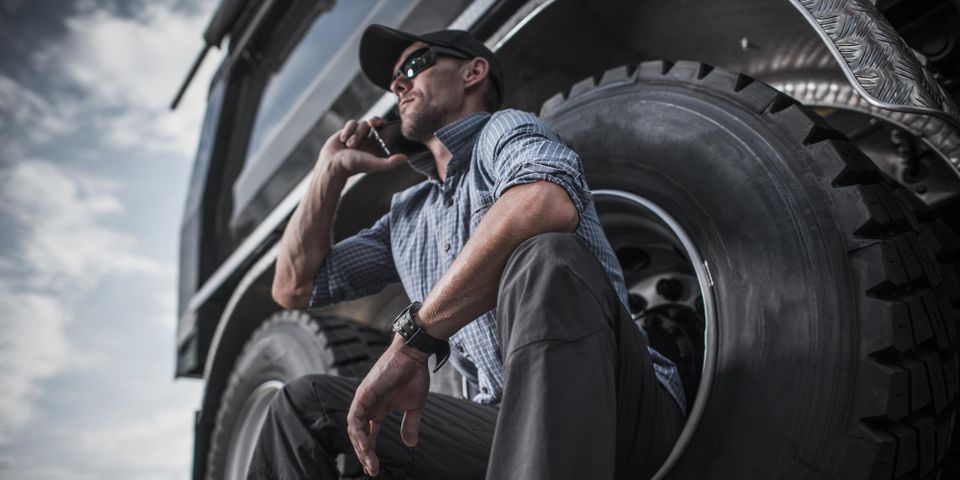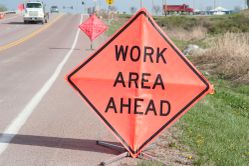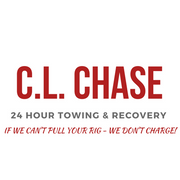How to Keep Your Semi Truck Tires From Going Flat

Big rigs may have a lot of tires, but that doesn’t make them less susceptible to the damage that smaller vehicles experience—especially flats. Apart from derailing your hauling schedule and contributing to fuel inefficiency, flats can lead to dangerous blowouts that may require emergency road service. Whether you manage a fleet or are an independent owner-operator, following these do’s and don’ts can help you keep your tires in good shape.
Do:
Perform routine visual inspections.
During your journey, tires will pick up heavy-duty debris that can lead to a puncture. To avoid air loss problems, visually inspect each tire for foreign objects and remove any you find. If the item causes a puncture, close the opening with a durable sealant product.
Check the pressure every ride.
Drivers will often judge air pressure levels based on the look of the tire alone. However, small decreases in pressure can happen with every drive and gradually increase your risk of a flat. To reduce the risk of needing emergency road service, you should manually check the pressure between rides to make sure they’re at the manufacturer’s recommended levels. If you maintain a fleet, keep a pressure log to ensure no driver is leaving with a flat.
Rotate regularly.
Tread wears unevenly due to load distribution, alignment, and other factors. This premature wear can weaken some tires and make them more susceptible to going flat. To prevent uneven wear, you should stick to a regular tire rotation schedule—such as at every other oil change or when the tires have reached a quarter of their expected mileage.
Don’t:
Take hazardous routes.
 If possible, plan your routes away from those that have harsh road conditions—such as construction areas. Rough roads and extra debris can cause damage to tires that may contribute to flats that may require emergency road service.
If possible, plan your routes away from those that have harsh road conditions—such as construction areas. Rough roads and extra debris can cause damage to tires that may contribute to flats that may require emergency road service.
Exceed cargo limits.
Loading your truck with too much cargo not only reduces fuel economy but also places excess pressure on tires that can contribute to flats. As such, it’s important to weigh the vehicle before departing and make sure you’re within the recommended range.
Forget about brakes.
When brakes aren’t cared for, they can contribute to uneven wear on tires. For this reason, you should have your brakes inspected and serviced regularly.
Based in Camp Douglas, WI, C. L. Chase 24 Hour Towing & Recovery is a convenient resource for truck drivers and fleet managers in the Juneau County area. Offering 24-hour emergency roadside service, these specialists will provide quick support to help with everything from flat tires to total breakdowns. In addition, this team is equipped to provide heavy-duty towing, truck repairs, and tire service to help you avoid costly and dangerous problems. Visit this semi repair shop online to learn more about their capabilities or call (608) 427-6734 to request emergency road service.
About the Business
Have a question? Ask the experts!
Send your question

